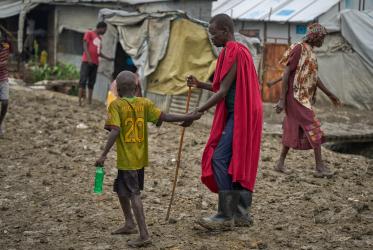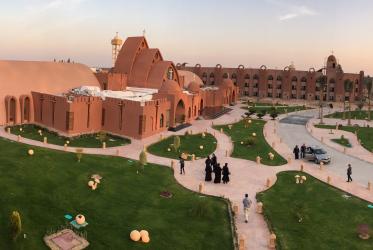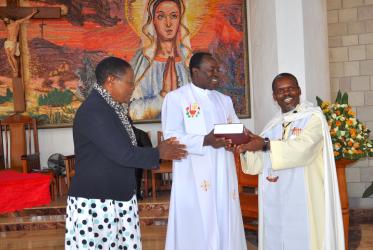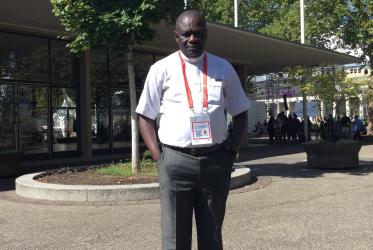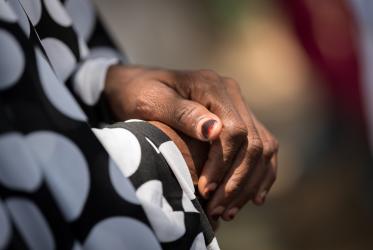La quatrième Plénière thématique de la 11e Assemblée du Conseil œcuménique des Églises (COE), qui s’est tenue le 6 septembre, avait pour thème «Affirmer la justice et la dignité humaine.» La présentation comprenait un spectacle de danse en fauteuil roulant exécuté par Fadi El Halabi, qui est en fauteuil roulant, et Mme Karen Abi Nader, une artiste internationale. Au cours de la danse libre, M. Halabi a tourné sans effort autour de son fauteuil roulant et, grâce à de lents mouvements coordonnés avec sa partenaire, a brandi les mains en l’air, symbolisant la joie qui ne peut être ressentie que lorsque toutes les pratiques d’exclusion et de déresponsabilisation en cours dans l’Église et la société sont combattues.
07 September 2022




